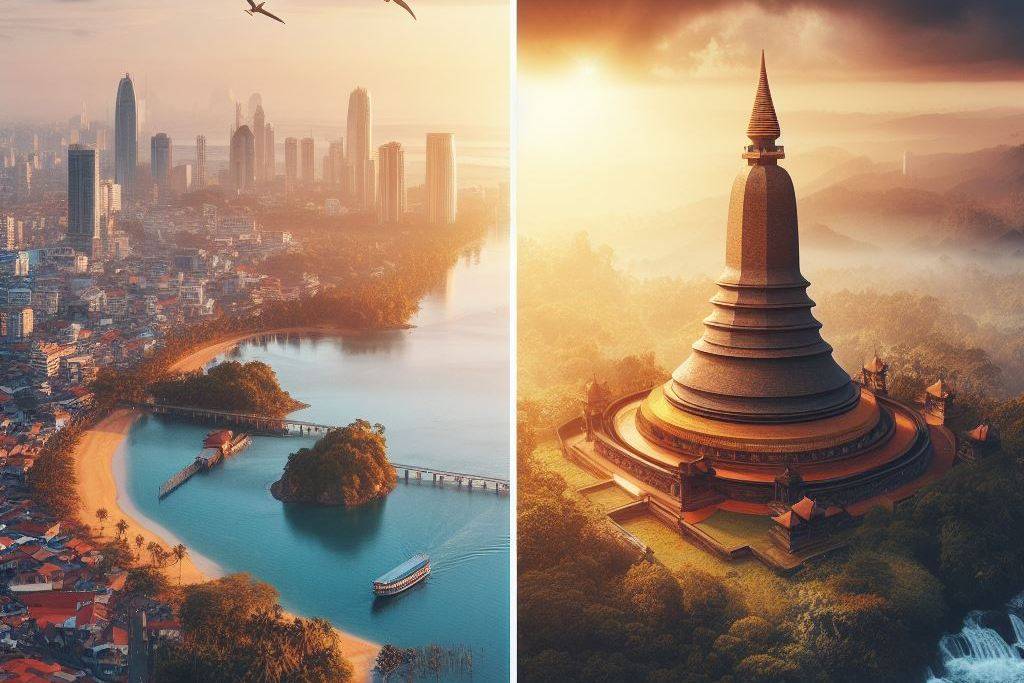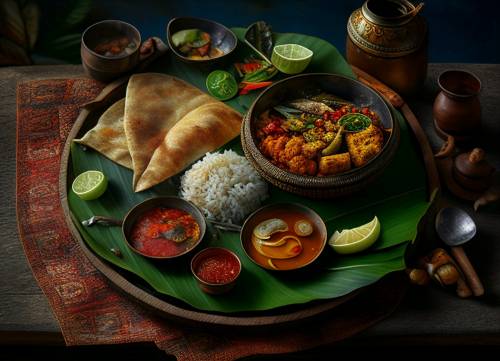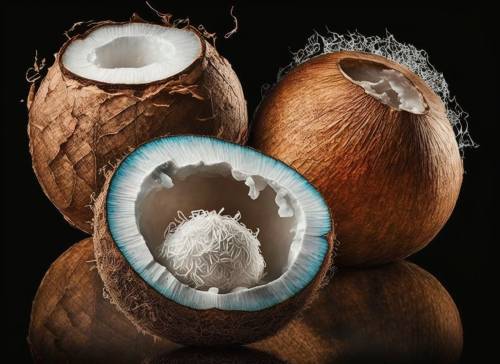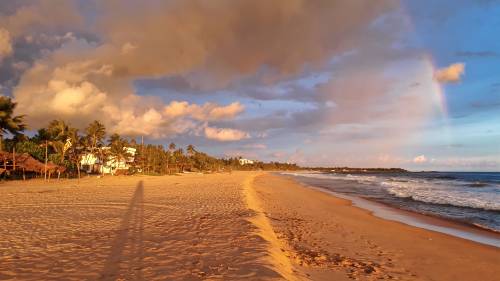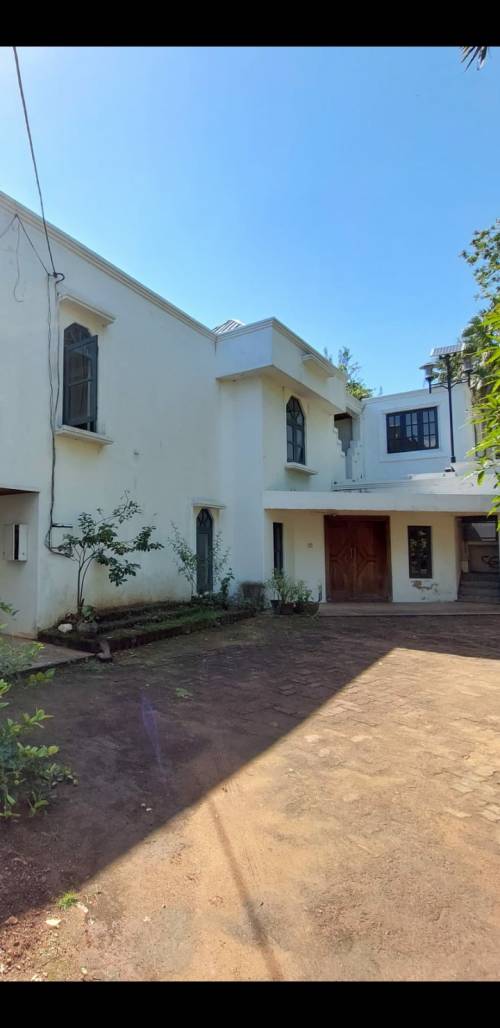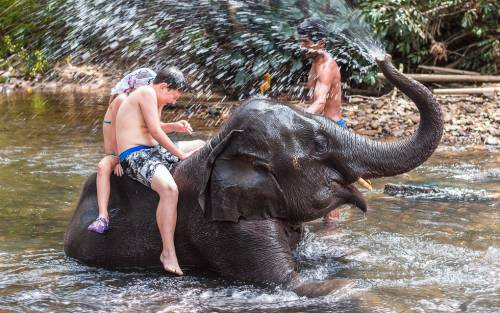The world is a treasure trove of diverse cultures, breathtaking landscapes, and vibrant experiences, and two Asian gems beckon travelers and expats with their unique allure. Sri Lanka and Vietnam, each a tapestry of history, nature, and culture, offer a captivating journey to those seeking adventure or a new home. From the pristine shores of Sri Lanka to the bustling streets of Vietnam, these destinations brim with contrasts and charm, and choosing between them can be a delightful dilemma. This article aims to be your compass, guiding you through the choices, as we unravel the intricacies of these two fascinating countries. In our quest to unveil the secrets of Sri Lanka and Vietnam, we'll explore every facet of the traveler and expat experience - from culture and cuisine to visas and transport. So, fasten your seatbelts and prepare for a thrilling ride, as we embark on a journey to discover whether Sri Lanka or Vietnam is the better destination for your next adventure.
Nature
When it comes to nature's marvels, few countries can hold a candle to the enchanting beauty of Sri Lanka and the mesmerizing landscapes of Vietnam. Let's dive into the lush world of nature, comparing the two in terms of their spectacular beaches, flora, and fauna. But remember, each of these countries has its unique charm and allure.
Beaches and ponds
Sri Lanka is often referred to as the "Pearl of the Indian Ocean," and its pristine beaches are undoubtedly its most precious gems. With over 1,600 kilometers of coastline, Sri Lanka boasts an array of beaches, each with its own character.
- Unawatuna Beach: Renowned for its horseshoe shape and golden sands, this beach is not only picturesque but also perfect for swimming and snorkeling.
- Mirissa Beach: If you're a fan of whale watching, this is the place to be. Mirissa is known for its laid-back atmosphere and vibrant sunsets.
- Hikkaduwa, Bentota, Tangalle, Arugam Bay… – there are countless amazing beaches on the island!
Vietnam's coastline, stretching over 3,000 kilometers, offers a unique blend of tranquil bays, bustling harbors, and serene fishing villages.
- Ha Long Bay: A UNESCO World Heritage site, Ha Long Bay is famous for its thousands of towering limestone karsts that rise dramatically from the emerald waters. It's often compared to a mystical dragon descending to the sea.
- My Khe Beach: This stretch of soft, white sand is not only beautiful but historically significant. It was a popular R&R spot for American soldiers during the Vietnam War.
Flora
Sri Lanka: A Tropical Eden
Sri Lanka's lush flora is a sight to behold. The island's varied climates provide fertile ground for a diverse range of plant life.
- Sinharaja Forest Reserve: A UNESCO World Heritage site, Sinharaja is a primeval tropical rainforest with an astounding array of plant species, some of which are found nowhere else on Earth.
- Tea Plantations: The rolling hills of Sri Lanka are adorned with tea plantations, producing some of the finest Ceylon tea. The emerald tea bushes create a stunning mosaic across the landscape.
Vietnam: Mekong Delta and Beyond
Vietnam's flora is as diverse as its geography, with everything from dense forests to picturesque rice paddies.
- Mekong Delta: This expansive delta is known as the "Rice Bowl" of Vietnam and is a fertile plain covered in lush green rice fields, orchards, and waterways.
- Ba Vi National Park: Located close to Hanoi, this park is a haven for biodiversity, with a rich tapestry of flora, including rare orchids.
Fauna: Is It Dangerous?
Sri Lanka: Wild Yet Gentle
Sri Lanka's wildlife is wild but generally non-threatening to humans.
- Elephants: Sri Lanka is renowned for its elephant population. You can spot these majestic creatures in national parks like Udawalawe.
- Leopards: Yala National Park is home to the highest concentration of leopards in the world, but they are elusive and seldom pose a threat to humans.
Vietnam: Beware of the Jungle
Vietnam's fauna includes some creatures that may give you pause.
- Indochinese Tigers: While they are critically endangered and rarely seen, the Indochinese tiger does exist in Vietnam's remote forests.
- Snakes: Vietnam is home to several venomous snakes, so it's advisable to exercise caution when hiking in the wilderness.
Both Sri Lanka and Vietnam offer a cornucopia of natural wonders. Sri Lanka's beaches and diverse flora, coupled with relatively safe wildlife encounters, make it an inviting destination for nature lovers. Meanwhile, Vietnam's enigmatic coastline and captivating landscapes are paired with a more adventurous wildlife scene. Whether you prefer the tropical tranquility of Sri Lanka or the mysterious allure of Vietnam, both countries are teeming with nature's beauty and adventure.
Civilization
As an ordinary tourist or an expat, choosing your next adventure is like selecting a flavor of ice cream: both Sri Lanka and Vietnam are delicious in their own way. Let's explore how they compare in terms of civilization, from supermarkets and food to cafes and safety.
Supermarkets, Shops, Markets, and Food Stalls
Sri Lanka: Slow and Serene Shopping
While Sri Lanka does have supermarkets and shops, it's the bustling markets and food stalls that steal the show for tourists. You can explore the Pettah Market in Colombo, a sensory delight filled with spices, fabrics, and street food. It's a great place to savor local flavors and get a feel for the culture.
Sri Lanka's supermarkets are well-stocked, especially in major cities like Colombo. Prices for basic items are relatively affordable, with a loaf of bread costing around $1, a kilogram of chicken breast at $5, and a liter of milk around $1.5.
Vietnam: Vibrant Street Markets
Vietnam is a haven for foodies and shopaholics alike. Local markets are an essential part of Vietnamese life. From the night markets of Hanoi to the floating markets in the Mekong Delta, you'll find everything from fresh produce to clothing and souvenirs.
Vietnam's markets are a treasure trove for expats seeking fresh ingredients and exotic goods. However, for the expat looking for convenience, supermarkets like Big C and Lotte Mart provide an array of options. Basic food prices include $1 for a loaf of bread, $6 for a kilogram of chicken breast, and $1 for a liter of milk.
Cafes and Restaurants
Sri Lanka: Affordable Eateries
Tourists and expats in Sri Lanka can enjoy a variety of cuisines from traditional to international. You can find a delicious Sri Lankan curry for as little as $3.50 in local eateries. While a basic meal in an inexpensive restaurant may cost around $5, you can splurge in a high-end restaurant for about $25 per person.
Vietnam: Street Food Heaven
Vietnam is famous for its street food, offering mouthwatering dishes like pho and banh mi. A hearty meal from a street food vendor will set you back around $2. Vietnam offers both local and international cuisine at prices that won't break the bank. A meal at an inexpensive restaurant costs around $3, while dining at a mid-range restaurant averages about $10 per person.
Convenience for Remote Work
While Sri Lanka does have internet access in major cities, it may be less reliable and slower than what tourists are used to in their home countries. Internet speed can be a concern for expats working remotely in Sri Lanka. Major cities offer relatively better connectivity, but remote work facilities are limited. But the ever-expanding 4G coverage, and in some places 5G, makes the situation much easier.
Vietnam generally provides better internet speeds and has a growing number of co-working spaces, particularly in cities like Hanoi and Ho Chi Minh City. Vietnam is becoming a popular destination for digital nomads, with good internet connectivity and an increasing number of co-working spaces.
Safety and Rules
For Tourists:
Sri Lanka is known for its friendly locals and relatively safe environment. However, it's essential to stay updated on travel advisories, especially in remote areas.
Vietnam is generally safe for tourists, with friendly locals. Petty crimes like bag snatching can occur, but overall, it's a welcoming destination.
For Expats:
Sri Lanka: Peaceful but Bureaucratic
Expats in Sri Lanka enjoy a peaceful environment, but dealing with bureaucracy can be challenging when it comes to visas and work permits.
Vietnam: Expat-Friendly
Vietnam has a growing expat community, and the government has been making efforts to streamline visa and work permit processes, making it relatively expat-friendly.
In summary, both Sri Lanka and Vietnam offer unique experiences for tourists and expats. Sri Lanka offers a slower pace of life with abundant natural beauty, while Vietnam boasts bustling markets and vibrant street food scenes. For expats, Vietnam generally provides better internet connectivity and is becoming a hub for remote work. Safety-wise, both countries are relatively safe, with their own unique charms and challenges. The choice between them ultimately depends on your preferences and priorities.
People and Culture
The people and their culture play a pivotal role in shaping the experience of both tourists and expats in Sri Lanka and Vietnam. Let's delve into the contrasting aspects of their attitude, languages of communication, and the bureaucratic tangles you might encounter.
Attitude Towards Tourists and Expats
Sri Lanka
Sri Lankans are renowned for their warm hospitality. As a tourist, you'll often find yourself on the receiving end of smiles, friendly conversations, and genuine interest in your well-being. Locals are eager to help you explore their beautiful island, and you'll feel genuinely welcomed.
Expats in Sri Lanka experience a generally friendly atmosphere, but it's worth noting that locals can be somewhat reserved towards foreigners, especially in more rural areas. However, in larger cities like Colombo, you'll encounter a more cosmopolitan and welcoming environment.
Vietnam
Vietnamese people are generally enthusiastic about interacting with tourists. They're inquisitive, interested in your culture, and eager to share their own. You'll find a warm and welcoming atmosphere in most parts of the country.
Vietnam's expat community is growing rapidly, and locals are generally open and welcoming towards foreigners. It's relatively easy for expats to integrate into local communities, and you'll often find people eager to practice their English and forge friendships.
Languages of Communication
Sri Lanka
Tourists in Sri Lanka can often get by with English. It's widely spoken in tourist areas, and most locals in the tourism industry can communicate in English. However, knowing a few Sinhala or Tamil phrases can be appreciated.
For expats in Sri Lanka, English is the language of business, and you'll find it commonly used in urban areas. There's no significant language barrier for most expats.
Vietnam
While English proficiency is improving in Vietnam, especially in urban areas, it's not as widespread as in Sri Lanka. You may encounter some language barriers, but with basic English and a few Vietnamese phrases, you can get around.
Expats in Vietnam who make an effort to learn the local language will have a more immersive experience. Vietnamese can be challenging to learn, but it's appreciated and can help with day-to-day interactions and understanding the culture.
Bureaucracy
As a tourist in Sri Lanka, you won't encounter much bureaucracy. Visas are relatively easy to obtain, and the process is streamlined for short-term visitors.
The bureaucracy for expats in Sri Lanka can be challenging, particularly in terms of work permits and visas. However, recent efforts have been made to streamline the process, making it somewhat easier.
Vietnam has more stringent visa requirements for tourists, with various visa categories and processes to navigate. It can be a bit more bureaucratic, but it's manageable with some advance planning.
Vietnam has made significant improvements in its bureaucracy, particularly for expats. Processes for obtaining work permits and long-term visas have become more straightforward in recent years.
In conclusion, both Sri Lanka and Vietnam offer unique and vibrant experiences for tourists and expats alike. Sri Lanka is known for its warm and welcoming people, while Vietnam offers an inclusive and curious culture. English is prevalent in Sri Lanka, making it easy for tourists and expats, while Vietnam is gradually improving its English proficiency. The bureaucracy can be challenging in both countries, but recent reforms are simplifying the process, particularly in Vietnam. Ultimately, your choice will depend on your preferences and adaptability to local customs and languages.
Entertainment
As a tourist, choosing between Sri Lanka and Vietnam can be an exhilarating yet daunting decision. Both countries offer a myriad of entertainment options, from leisure activities and nightlife to captivating attractions. Let's explore what each destination has to offer in terms of entertainment.
Leisure and Activities: Tropical Dreams and Adventures
Sri Lanka: Tropical Bliss
Sri Lanka is a tropical haven with a diverse range of leisure activities. The island's stunning landscapes provide a backdrop for outdoor enthusiasts and culture seekers.
- Surfing: Arugam Bay is a world-renowned surf spot with consistent waves that attract surfers from across the globe.
- Scenic Train Rides: The train journey from Kandy to Ella takes you through lush tea plantations, misty mountains, and charming villages.
- Wildlife Safaris: Yala National Park is a top destination for spotting leopards, elephants, and a plethora of bird species.
- Tea Plantations: Visit plantations in the hill country to learn about the process of tea production and enjoy the stunning vistas.
- Historical Sites: Explore ancient cities like Anuradhapura and Sigiriya, where you'll find fascinating ruins and rock fortresses.
Vietnam: Cultural Extravaganza and Adventure Galore
Vietnam offers a vibrant blend of culture and adventure for tourists.
- Halong Bay: Cruise through the mystical limestone karsts and caves of Halong Bay, a UNESCO World Heritage Site.
- Motorbike Adventures: Embark on thrilling motorbike journeys through the stunning landscapes of northern Vietnam.
- Hoi An: This charming town offers lantern-lit evenings, beautiful architecture, and delicious street food.
- Mekong Delta: Discover the labyrinthine waterways, floating markets, and lush greenery of the Mekong Delta.
- Cu Chi Tunnels: Learn about Vietnam's history by exploring the Cu Chi Tunnels used during the Vietnam War.
Nightlife: From Serene Evenings to Bustling Streets
Sri Lanka: Relaxed Evenings
Sri Lanka's nightlife is more subdued compared to its Southeast Asian counterparts.
- Beach Bars: Coastal towns like Mirissa and Unawatuna have laid-back beach bars with live music.
- Colombo: The capital offers a few nightclubs and bars for those seeking a more urban nightlife scene.
Vietnam: Bustling Streets and Night Markets
Vietnam's nightlife is more vivacious, especially in cities like Hanoi and Ho Chi Minh City.
- Bia Hoi: Enjoy the local beer culture at Bia Hoi corners, where you can savor fresh draft beer on plastic stools.
- Night Markets: Explore night markets like Hanoi's Old Quarter or Ho Chi Minh City's Ben Thanh Market, where you can shop, eat, and people-watch.
- Rooftop Bars: Many Vietnamese cities boast rooftop bars with stunning views, offering a chic and vibrant nightlife.
Attractions: History, Nature, and Culture
Sri Lanka: Ancient and Natural Wonders
Sri Lanka's attractions blend history, nature, and spirituality.
- Sigiriya Rock Fortress: Climb the iconic Lion Rock and explore the ancient palace ruins at its summit.
- Dambulla Cave Temples: Visit the stunning cave temples adorned with intricate Buddhist murals.
- Pinnawala Elephant Orphanage: Get up close to rescued elephants and watch them bathe in the river.
- Adam's Peak: A pilgrimage site known for its sacred footprint, offering breathtaking sunrise views.
- Galle Fort: Wander through the historic streets of this UNESCO World Heritage site.
Vietnam: History and Cultural Riches
Vietnam's attractions are a tapestry of history and culture.
- The War Remnants Museum: Gain insights into the Vietnam War and its impact on the country.
- Imperial City of Hue: Explore the ancient citadel and imperial palaces, a UNESCO World Heritage site.
- My Son Sanctuary: Visit the Hindu temple complex, another UNESCO site.
- Perfume Pagoda: A stunning pilgrimage site set in a vast cave system.
- Hoan Kiem Lake: Stroll around the scenic lake in the heart of Hanoi.
In summary, Sri Lanka and Vietnam each offer a unique and captivating experience for tourists. Sri Lanka provides a laid-back tropical paradise with diverse leisure activities, while Vietnam combines cultural immersion with adventure. Nightlife is mellower in Sri Lanka but vibrant in Vietnam's bustling streets and markets. Both countries feature a wealth of attractions, from ancient ruins to natural wonders, ensuring that every tourist can find their ideal escape.
Hotels and rental housing
When it comes to accommodation, finding the perfect place to stay can greatly influence your experience as a tourist or expat. Let's delve into the housing market, hotel prices, and monthly rental costs in Sri Lanka and Vietnam.
Sri Lanka
Sri Lanka boasts a thriving tourism industry, offering a wide range of accommodation options. You can find everything from budget-friendly hostels and guesthouses to high-end luxury resorts, especially in popular tourist destinations like Colombo, Kandy, and the coastal towns of Mirissa and Unawatuna.
Economy hotels can be found for as low as $20 per night, while luxury resorts can go upwards of $300 per night. Sri Lanka's hospitality industry caters to a variety of budgets, offering both comfort and opulence.
While short-term rentals are more common, you can find monthly rental options for apartments and holiday homes, especially if you plan to stay for an extended period. Prices vary, but you can expect to pay between $500 and $1,500 per month for a furnished apartment, depending on location and amenities.
Vietnam
Vietnam's housing market for tourists is diverse and highly competitive. From charming hostels and guesthouses to swanky international hotel chains, there's something for every budget.
Economy hotels in Vietnam can cost as little as $15 per night, while luxury options can range from $100 to $300 or more. Vietnam's affordability makes it a fantastic destination for budget-conscious travelers.
Tourists seeking monthly rentals can easily find furnished apartments and even houses. Prices are incredibly affordable, with apartments typically ranging from $300 to $800 per month, while houses or villas might go up to $2,000, depending on location and amenities.
Transport
When it comes to exploring a new country as a tourist or settling down as an expat, getting around efficiently is a top priority. Both Sri Lanka and Vietnam offer unique experiences when it comes to transportation. Let's delve into the differences between the two in terms of public transport, taxis, car rentals, and motor vehicle rentals.
Public Transport
Public transport in Sri Lanka primarily consists of buses and trains. While the train rides are renowned for their scenic beauty, buses are a more practical choice for tourists. They are frequent and inexpensive, allowing you to explore the island's diverse landscapes.
Interesting Fact: The train journey from Kandy to Ella in Sri Lanka is often considered one of the most beautiful train rides in the world, passing through lush tea plantations and misty mountains.
In Vietnam, public transport is a mix of buses, trishaws (cyclos), and scooters. While buses are available, scooters are the most popular and affordable way to get around in cities. You can also experience the traditional charm of cyclo rides in Hanoi.
Interesting Fact: Hanoi's Old Quarter is famous for its cyclo rides, where you can enjoy the bustling streets from a leisurely seat.
For Expats
For expats, public transport can be adequate but crowded. Buses and trains are the main modes of transport, and while they are affordable, they can be quite congested, particularly during rush hours.
Vietnam's public transport is known for being efficient and budget-friendly, making it an excellent choice for expats. The extensive bus network and easy access to scooters allow for hassle-free commuting.
Taxis: Convenience on Wheels
Sri Lanka: Tuk-Tuks and Traditional Taxis
In Sri Lanka, you'll find traditional taxis and tuk-tuks (auto-rickshaws) in urban areas. Tuk-tuks are iconic and a fun way to explore the city, while taxis are more comfortable for longer journeys.
Vietnam: Grab and Vinasun Taxis
Vietnam has modernized its taxi service with apps like Grab, making it incredibly convenient for tourists. The iconic Vinasun taxis are also reliable and widely available.
Car Rental: Touring on Four Wheels
Tourists can rent cars in Sri Lanka, but it's more common to hire a car with a driver. Self-driving is possible, but the traffic and road conditions may be challenging for some.
Car rental in Vietnam is available, and self-driving is a popular choice, especially for those exploring the country's scenic roads.
Motor Vehicle Rentals: Embracing Two Wheels
Tourists can rent scooters or motorcycles in Sri Lanka to navigate the narrow streets and scenic routes, especially in beach towns like Mirissa. Expats often choose scooters or motorcycles as a practical means of transportation for daily commuting.
Scooters are the dominant mode of transportation for tourists in Vietnam. You can easily rent one and experience the thrill of weaving through city traffic. Scooters are an integral part of daily life for expats in Vietnam, offering an affordable and convenient way to get around.
In conclusion, both Sri Lanka and Vietnam provide tourists and expats with a variety of transportation options to suit different preferences and needs. Sri Lanka's transportation is colorful, but it can be crowded, while Vietnam offers efficient and budget-friendly options. Taxis are readily available in both countries, with modern taxi apps in Vietnam making it incredibly convenient. Car rentals and motor vehicle rentals are viable options, catering to different travel styles and preferences. Whether you're a tourist exploring the sights or an expat navigating daily life, both countries offer an array of transportation choices to enhance your experience.
Visa Regulations
Visa requirements can significantly impact a traveler's experience, whether you're a tourist, a freelancer, a digital nomad, or an expat. Both Sri Lanka and Vietnam offer unique visa regulations, so let's explore the similarities and differences.
Sri Lanka
As of 2023, travelers wishing to visit Sri Lanka have several visa options to consider. Here's a breakdown based on the available information
- Electronic Travel Authorization (ETA) Visa
The cost for an online ETA visa or visa on arrival has been increased from $35 to $50 since December 2022.
Visas, also known as ETAs, for trips up to 30 days can be obtained from the government’s Department of Immigration and Emigration website. The application process is straightforward, requiring only the completion of a simple form and making an online payment, with no need to submit passport copies, documents, or photographs. This application is also available on arrival. - Long-term Tourist Visa
If intending to stay for more than 30 days, foreign nationals can be granted a visa for a maximum of 90 days with a double entry. The application for this type of visa can be made by the applicant or a third party on behalf of the applicant by submitting the ETA application to the Consular office. - Visa on Arrival
Citizens of Maldives and Seychelles can obtain a visa on arrival at the port of entry free of charge. Maldivian citizens can get a visa on arrival for 30 days, extendable to 150 days, while Seychellois citizens can obtain a visa on arrival for 60 days, extendable for a maximum of 90 days in a single year. - Visa Fee Waiver
According to a notification from the Tourism Ministry of Sri Lanka, tourists arriving from India and 47 other countries were exempted from the Sri Lanka visa cost, though this notification was only valid until January 31, 2020. - The requirement to present a COVID-19 vaccination certificate and a negative COVID-19 test at the entrance has been removed since December 20221. However, preventive measures may still be in place for persons arriving from overseas during the pandemic, so it's advisable to check the latest health guidelines.
Note: The extended visa regime, which possibly could affect the visa conditions and fees, was stated to be in effect until June 25, 2023. This information might have changed, and it's recommended to check the latest updates from official government sources.
Vietnam
As of October 2023, Vietnam has implemented a number of measures to facilitate international travel. Here are the key points regarding visa rules and procedures in Vietnam:
- E-Visa Validity and Application
Effective from August 15, 2023, e-visas are available for travelers from all countries and territories, allowing a stay of up to 90 days with multiple entries. The cost for an e-visa is 25 USD. Applications for e-visas can be submitted on the e-visa web portal of the Vietnam Immigration Department or at the National Public Service Portal of the Ministry of Public Security. - The application process for e-visas is straightforward: fill in the online form with personal and travel details, upload a digital photo meeting standard visa photo requirements, pay the visa fee online, and wait for the e-visa to be processed, which usually takes three working days. Once approved, the e-visa will be sent to the applicant's email as a PDF file which needs to be printed and presented upon arrival.
- Visa Costs:
The cost for a single-entry version of the 90-day visa remains the same as the old 30-day visa, at 25 USD, plus a small processing fee. The multiple-entry version of the 90-day visa costs 50 USD, plus the processing fee.
The processing fee for a Vietnam e-visa ranges from 25 USD to 80 USD depending on the applicant’s nationality and selected processing time. - Visa Extensions and Visa-on-Arrival
E-visas cannot be extended once issued. If travelers wish to stay in Vietnam for more than 30 days, they must apply for a visa extension through the Immigration Department in Vietnam.
Vietnam has extended its free visa-on-arrival from 15 to 45 days for select countries, effective from August 15, 2023, as a part of an initiative to boost tourism recovery. - Required Documentation
Applicants for a Vietnam e-visa must have a valid passport, provide personal and travel information, proof of accommodation, and a digital photo. Payment of the visa fee is also a requirement for the application
Summary: Sri Lanka vs. Vietnam - Tourist and Expat Comparison
In the vibrant debate between Sri Lanka and Vietnam, we've explored multiple aspects of each country, offering insights into what makes them unique. To arrive at a conclusion on where it's more comfortable for tourists and expats, we need to consider three main criteria: affordability, comfort, and interestingness.
Tourist Perspective:
Affordability: Vietnam generally stands out as the more affordable destination for tourists. It offers budget-friendly accommodations, meals, and activities, making it a haven for travelers seeking to explore without breaking the bank. Sri Lanka is also reasonably priced but tends to be slightly more expensive, particularly in tourist hotspots.
Comfort: Both countries provide comfortable experiences, but Vietnam's well-developed tourism infrastructure, efficient public transport, and modern conveniences make it a slightly more comfortable destination for tourists. Sri Lanka, while still accommodating, might have fewer options for certain amenities in more remote areas.
Interestingness: Both countries are rich in culture and natural beauty, but their interestingness is shaped by different flavors. Sri Lanka is known for its serene beaches, historical sites, and lush tea plantations. Vietnam boasts bustling markets, a dynamic street food scene, and a thriving urban culture.
Expat Perspective:
Affordability: Vietnam is a clear winner when it comes to affordability for expats. It offers a lower cost of living, budget-friendly accommodation, and everyday expenses. Sri Lanka, while still reasonable, tends to be slightly more expensive for expats.
Comfort: Both countries offer comfort, but Vietnam's more developed infrastructure, easier access to amenities, and efficient public services make it a more comfortable choice for expats. Sri Lanka may have limitations in terms of certain conveniences in less urban areas.
Interestingness: Sri Lanka and Vietnam each provide unique and fascinating experiences for expats. Sri Lanka's slow-paced charm, natural beauty, and friendly locals create an appealing environment. Vietnam offers a vibrant culture, affordable living, and numerous opportunities for exploration.
Conclusion:
On average, Vietnam emerges as a more comfortable destination for both tourists and expats. Its affordability, well-developed infrastructure, and diverse offerings in terms of culture and experiences make it a standout choice. However, it's essential to note that personal preferences play a significant role in choosing the ideal destination. Sri Lanka, with its unique charm and serene atmosphere, might be the perfect choice for those who value relaxation and natural beauty over urban conveniences.
As for the comparison points, we invite readers to confirm or refute the conclusions based on their own experiences and preferences. Each traveler and expat has their own unique desires and priorities, and what might be comfortable or interesting for one person may differ for another. Ultimately, the best destination is the one that aligns most closely with your individual needs and desires.
